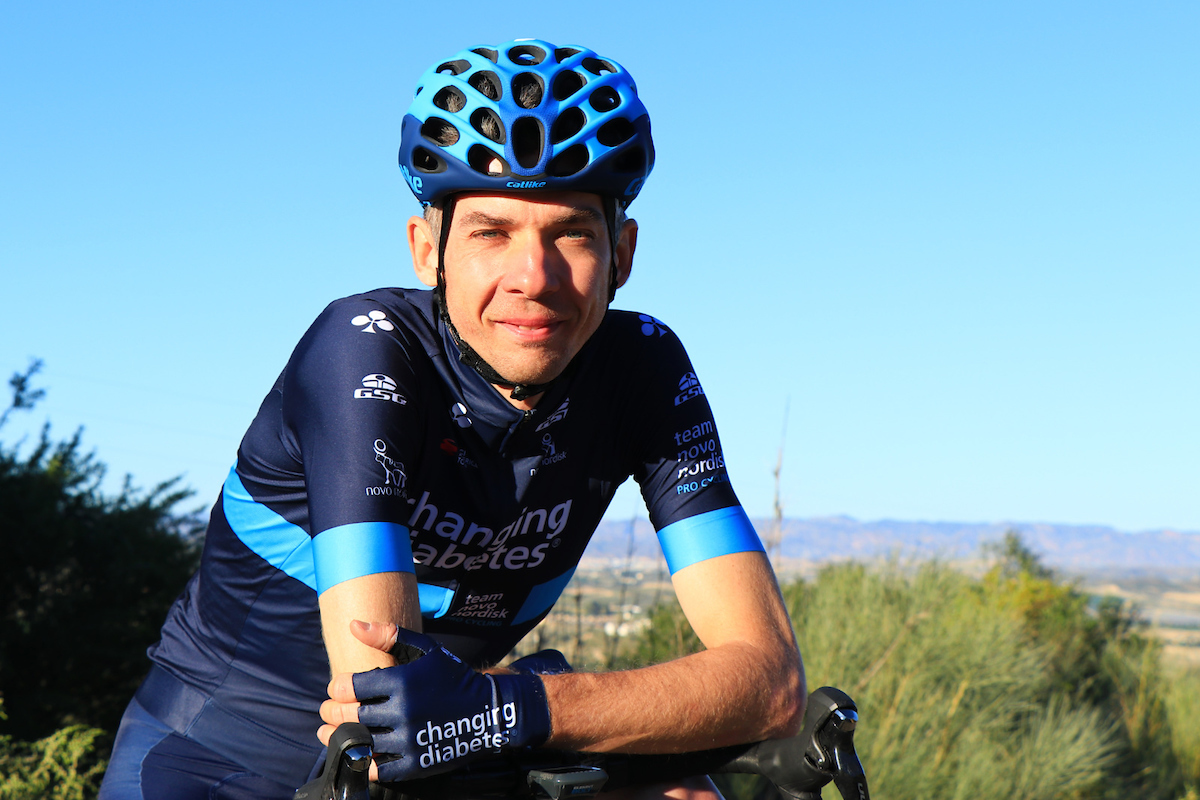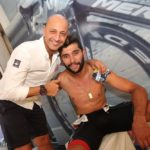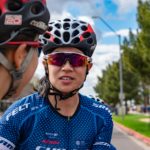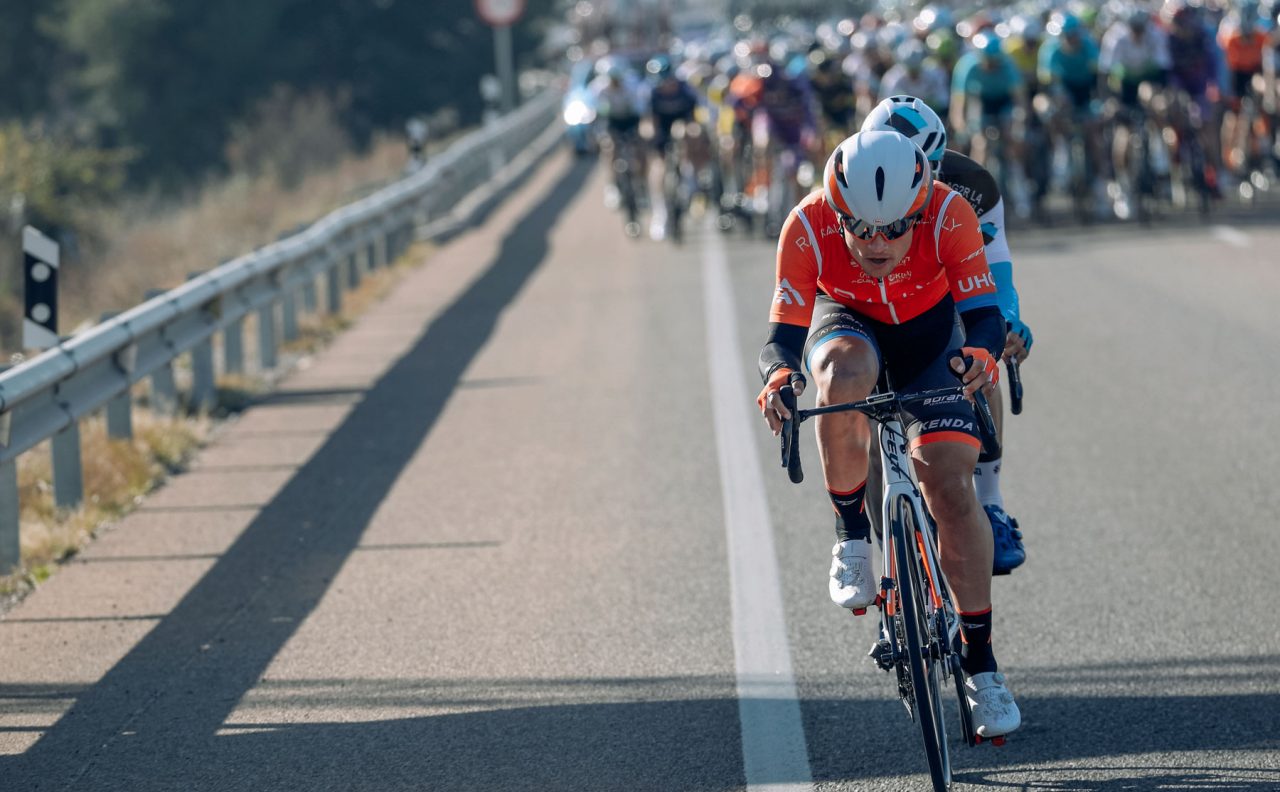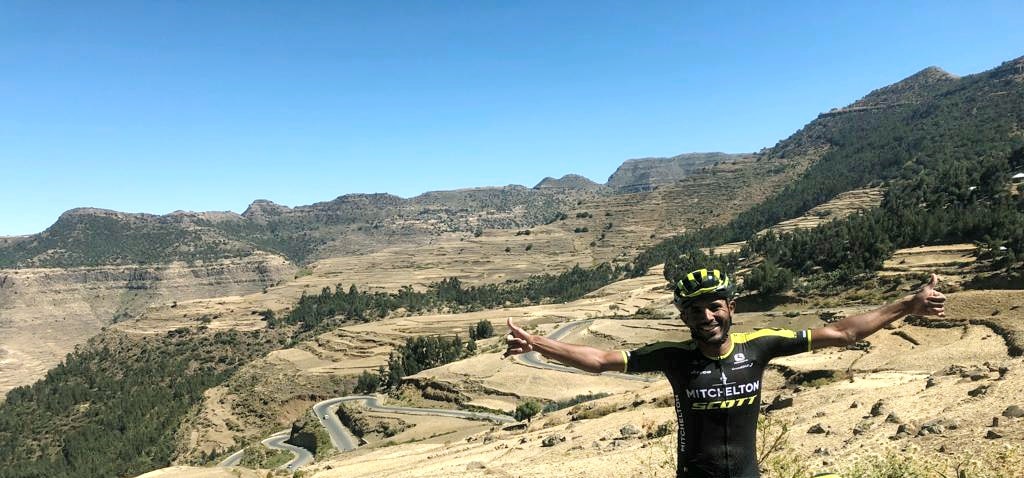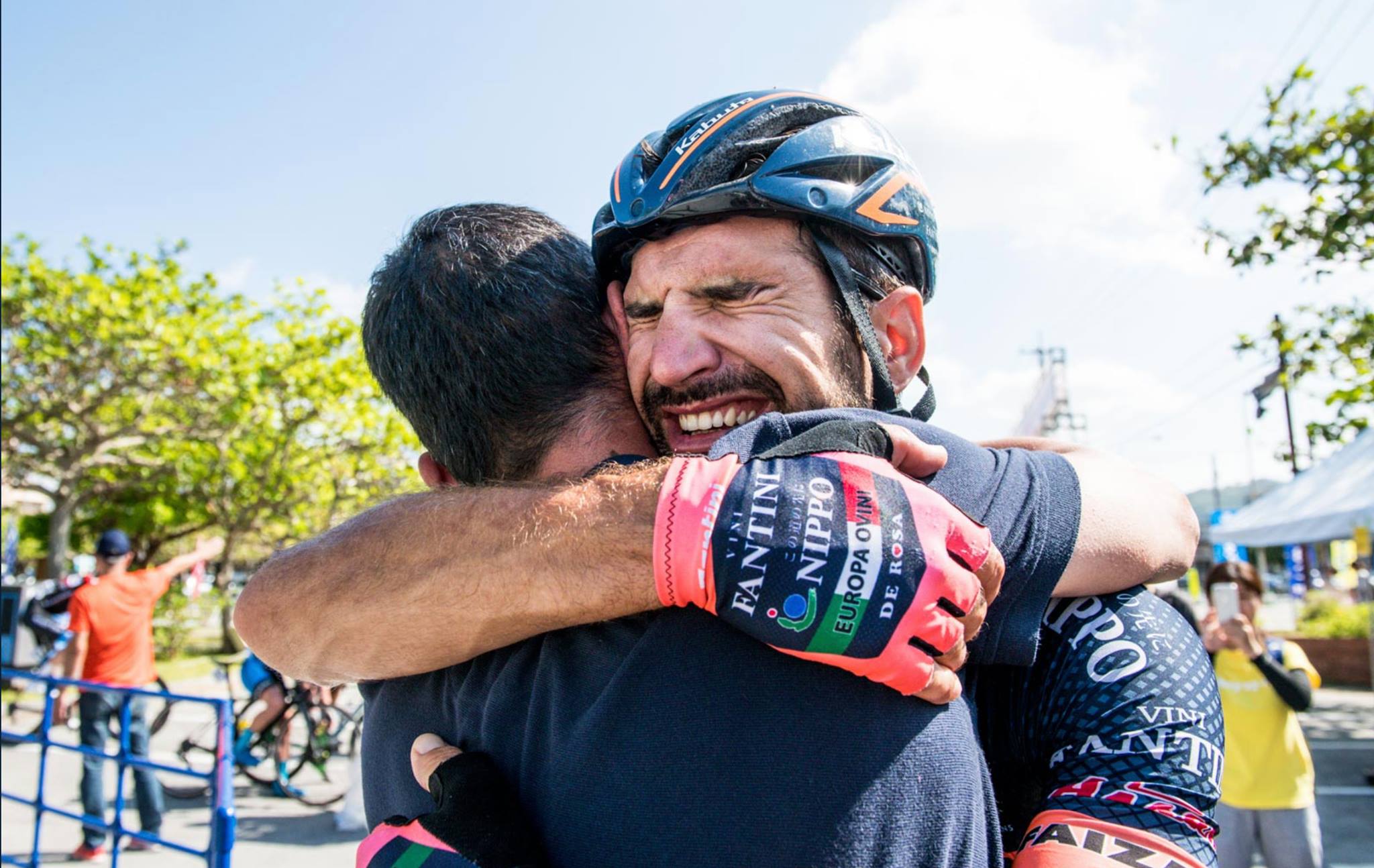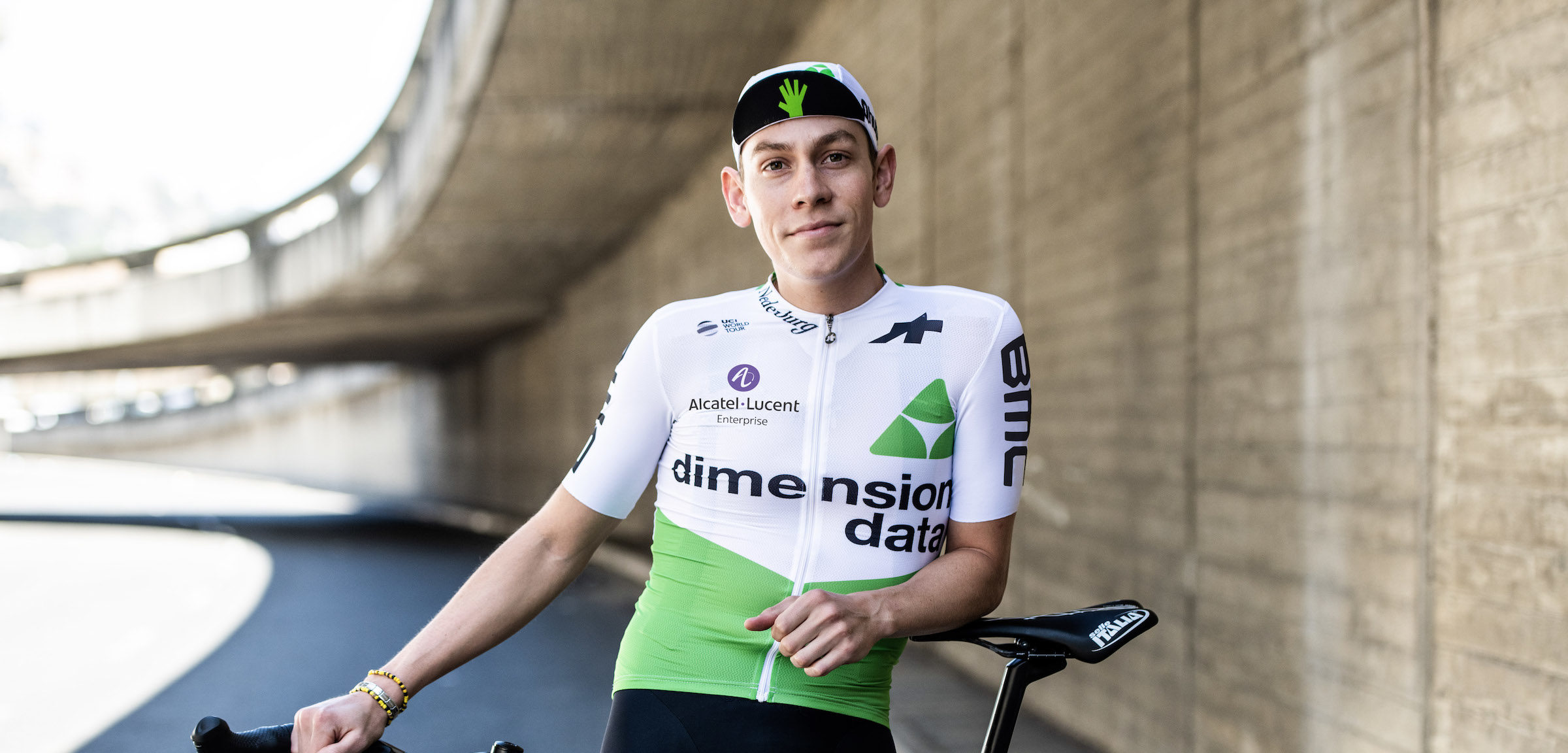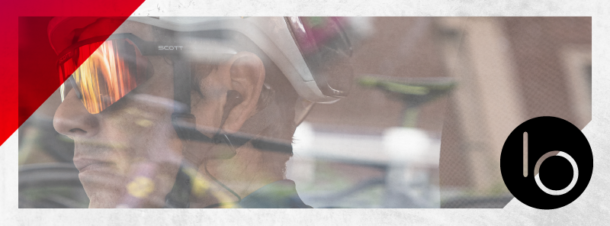The crash happened in the Czech Cycling Tour. It was the queen stage and there were 15 of us coming to the line in a sprint. It was tricky and technical, and we were fighting for the stage win – hectic. Three of us went down. I stood up and made it to the finish but had a lot of pain in my collarbone. I spoke to the doctor who said it was broken and that I needed to go to the hospital. An x-ray confirmed the fracture.
I went home to Hungary to have an operation. The doctor asked me if I had eaten something before the operation because I was supposed to come to the hospital with an empty stomach. He said my blood sugar was very high. I was sure it was because of the crash and stress but for two weeks after the operation I tested my blood sugar levels at home. It was still high every day.
I returned to the hospital and they did some special blood tests where I got some shocking news. I had diabetes. My mind was racing. Can I still be a cyclist? Is this the end of my career? What will I eat? How do you use insulin?
The first three or four weeks were really hard for me and my family.
I contacted Team Novo Nordisk for advice. I’ve always kept and eye on the team and knew they only had riders with diabetes. My aim was just to get advice from them. Phil, the CEO of Team Novo Nordisk, gave me the confidence to know that I could continue as a cyclist. That it was possible to manage it.
Then things got more interesting.
They noticed my experience as a cyclist. I’d been to the Olympic games, World Championships and been racing on the Continental scene for 13 years. I’d always had the dream to go to a bigger team and never had the opportunity , I don’t know why because I’ve had some good results.
Team Novo Nordisk said if I had type 1 diabetes, there was a big possibility to get a contract with them. They did some analysis of my blood to see what diabetes I had. I’ve never hoped to have a disease before. I never imagined this would be my ticket to a bigger team.
The test came back as type 1 and the team offered me a contract. It was hard because one eye is crying and the other one is smiling. It was bittersweet.
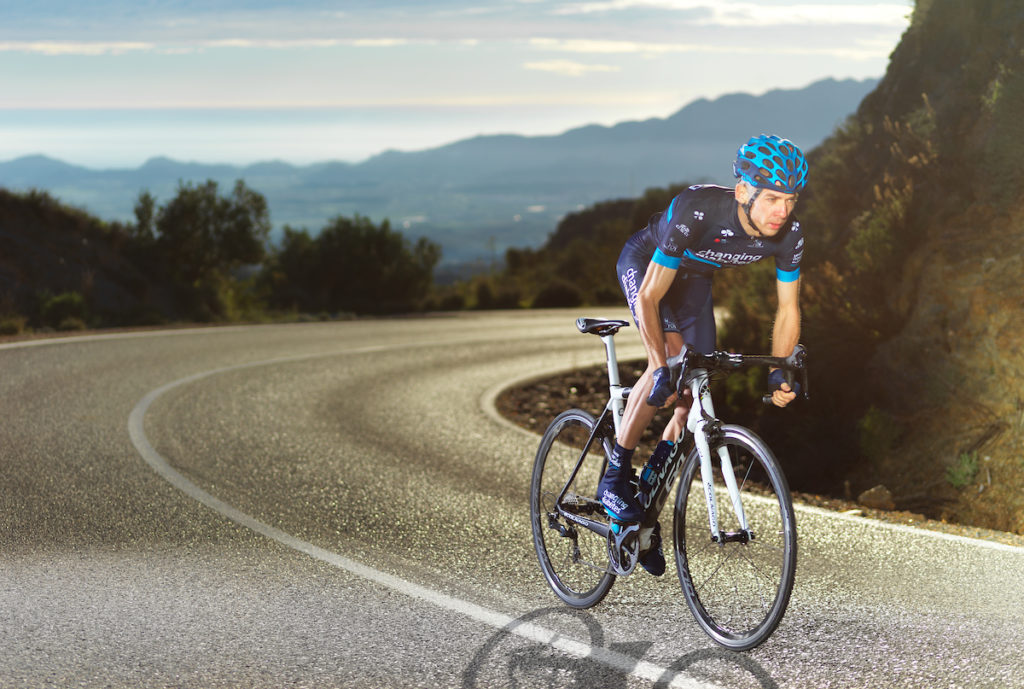
Photo: Peter Kusztor, Team Novo Nordisk 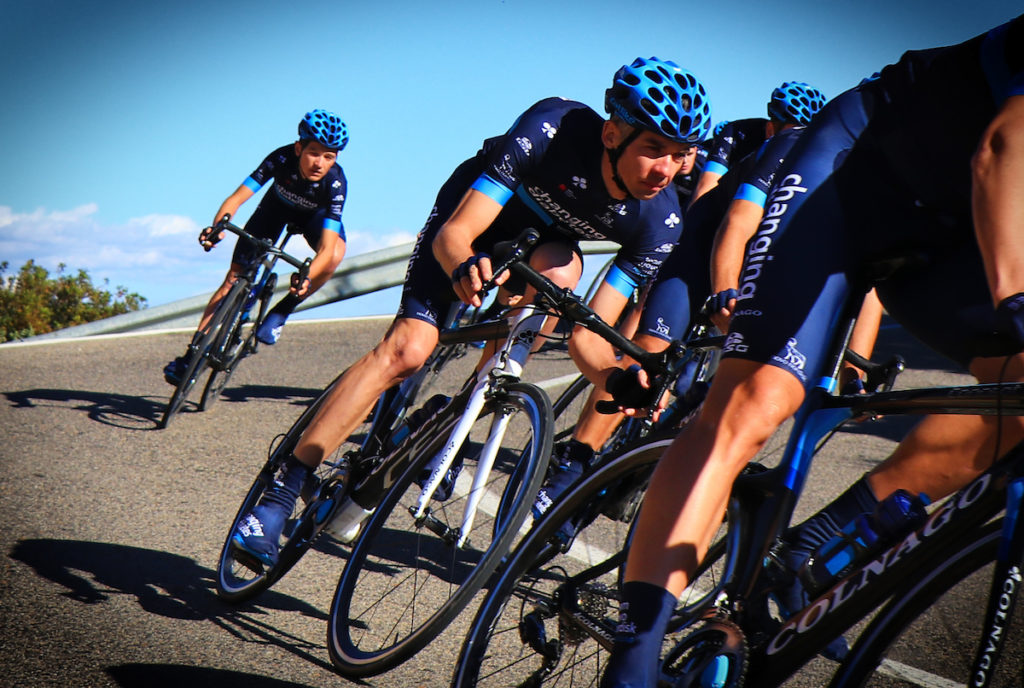
This process helped me come to terms with the diagnosis. At least I could still be a pro cyclist so I’m happy. I think I have 3-4 years left where I can still ride my bike professionally.
The adaption to the lifestyle actually wasn’t a big one for us as a family. We’ve always lived healthy lives as my wife is a sports woman as well. I’ve been a cyclist for more than 20 years and always watched what I ate so I didn’t understand why this was happening to me. One piece of advice I got in Hungary was to not try to figure out why this was happening to me but just to move forward and manage it.
We have doctors in the family so they helped me a lot after the initial shock and truthfully the change in lifestyle wasn’t that big.
I’ve had the first training camp with the team now and I really like the environment. We are the same cyclists as everyone else. We do the same races, we fight for the same results and podiums. It’s just that we have diabetes. There is almost no difference. If we can manage it well, we can do anything. That’s the message I would like to take back to Hungary to show people diabetes and high-performance professional sport can co-exist.

